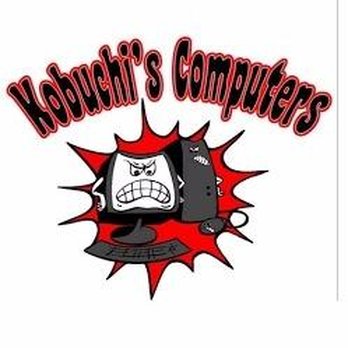Speed Up Your PC: Tech Tips from the Pros | keep your computer running fast and efficiently
- Mark Kobuchi

- Feb 3
- 3 min read
Is your computer feeling sluggish?
Don't let a slow PC slow you down! At Kobuchi's Computers, we know how frustrating it can be when your computer takes forever to load or applications crawl. That's why we've compiled this list of tech tips to help you keep your machine running fast and efficiently.

1. Declutter Your Hard Drive
Think of your hard drive like a closet. The more crammed it is, the harder it is to find what you need. Over time, your hard drive accumulates unnecessary files like temporary files, old downloads, and duplicate photos.
Disk Cleanup: Use the built-in Disk Cleanup tool to remove temporary files, system error memory dumps, and other unnecessary data.
Uninstall Unused Programs: Get rid of applications you no longer use to free up space and resources.
Organize Your Files: Create folders and organize your files to make it easier to find what you need and delete what you don't.
2. Boost Your RAM
RAM (Random Access Memory) is like your computer's short-term memory. The more RAM you have, the more tasks your computer can handle simultaneously. If your computer is running slowly, upgrading your RAM can make a noticeable difference.
Check RAM Usage: Use the Task Manager (Ctrl + Shift + Esc) to see how much RAM you're using. If it's consistently high, consider upgrading.
Consult an Expert: If you're unsure about how much RAM you need or how to install it, contact Kobuchi's Computers for expert advice and assistance.
3. Optimize Startup Programs
Many programs automatically launch when you start your computer, which can significantly slow down boot time.
Disable Startup Programs: Go to your Startup Apps settings (search for "Startup Apps" in the Windows search bar) and disable any programs you don't need to run at startup.
Prioritize Essential Programs: Keep essential programs like antivirus software enabled.
4. Keep Your Software Updated
Software updates often include performance improvements and bug fixes. Make sure your operating system, drivers, and applications are up-to-date.
Enable Automatic Updates: Turn on automatic updates for your operating system and other software to ensure you have the latest versions.
5. Run Regular Virus Scans
Malware and viruses can significantly impact your computer's performance.
Install Antivirus Software: Use reputable antivirus software and keep it updated.
Schedule Regular Scans: Set up regular full system scans to detect and remove any threats.
6. Defragment Your Hard Drive
Defragmenting your hard drive reorganizes files, making them easier to access and improving performance.
Use the Defragment and Optimize Drives Tool: Search for "Defragment" in the Windows search bar and run the tool to optimize your hard drive.
7. Consider an SSD Upgrade
Solid State Drives (SSDs) are much faster than traditional hard drives. Upgrading to an SSD can dramatically improve your computer's boot time and overall performance.
Consult with Kobuchi's Computers: We can help you choose the right SSD for your needs and install it for you.
8. Clean Up Your Browsing Habits
Too many open browser tabs and extensions can consume resources and slow down your computer.
Close Unused Tabs: Close tabs you're not actively using.
Manage Browser Extensions: Disable or remove unnecessary browser extensions.
9. Adjust Visual Effects
Windows uses visual effects that can slow down older computers.
Adjust Performance Settings: Search for "Adjust the appearance and performance of Windows" and choose "Adjust for best performance" to disable visual effects.
10. Seek Professional Help
If you've tried these tips and your computer is still running slow, it might be time to seek professional help.
Contact Kobuchi's Computers: We offer expert computer repair services in Washington, PA, and can diagnose and fix any underlying issues affecting your computer's performance.
By following these tech tips, you can keep your computer running fast and efficiently for years to come. If you need assistance with any of these steps or have other computer-related questions, don't hesitate to contact Kobuchi's Computers. We're here to help!

Comments